#Technology And Humanity
Explore tagged Tumblr posts
Text
The Relationship Between Cyberpunk and Posthumanism
Cyberpunk and posthumanism are two interconnected paradigms that explore the implications of advanced technology on human identity, society, and the future. Both address themes of human augmentation, the blurring of boundaries between human and machine, and the socio-political ramifications of technological advancements. Here's an exploration of their relationship:
1. Technological Augmentation and the Human Body
Cyberpunk: Cyberpunk narratives frequently depict a world where humans enhance their bodies with cybernetic implants and other technological modifications. This genre questions what it means to be human when our physical form is increasingly defined by technology.
Posthumanism: Posthumanism critically examines how technological enhancements can transform human identity and capabilities. It challenges traditional notions of the human body and mind, proposing that technology can fundamentally alter human existence.
2. Identity and Consciousness
Cyberpunk: Characters in cyberpunk often grapple with their sense of identity, especially when their consciousness can be uploaded, transferred, or altered by technology. These stories explore the fluidity of identity in a technologically advanced world.
Posthumanism: Posthumanist theory delves into the philosophical implications of such scenarios, questioning the nature of consciousness and identity. It posits that identity is not fixed but can be reshaped by technological and biological changes.
3. Socio-Political Implications
Cyberpunk: Cyberpunk worlds are typically characterized by vast socio-economic divides, corporate dominance, and a dystopian society where technology exacerbates inequality. This genre highlights the dark side of technological progress and its impact on society.
Posthumanism: Posthumanism engages with these socio-political issues, critiquing the power dynamics and ethical considerations that arise with advanced technology. It explores how technology can both empower and oppress, depending on its use and distribution.
4. Blurring of Boundaries
Cyberpunk: A key theme in cyberpunk is the dissolution of boundaries between human and machine, reality and virtuality. Characters often exist in hybrid states, part human and part machine, challenging the clear-cut distinction between the two.
Posthumanism: Posthumanism philosophically supports this blurring of boundaries, suggesting that the human experience is inherently intertwined with technology. It advocates for a more integrated understanding of humanity that includes our technological extensions.
5. Ethical and Existential Questions
Cyberpunk: Cyberpunk narratives frequently raise ethical and existential questions about the implications of living in a world dominated by technology. Issues such as privacy, autonomy, and the essence of humanity are central to the genre.
Posthumanism: Posthumanism provides a theoretical framework to address these questions, proposing that we rethink ethical norms and existential meanings in light of our evolving technological landscape. It emphasizes the need for ethical considerations in technological development.
The relationship between cyberpunk and posthumanism is deeply intertwined, with cyberpunk providing a narrative exploration of themes that posthumanism examines philosophically. Both explore the transformative impact of technology on humanity, identity, and society, highlighting the potential and pitfalls of a technologically enhanced future. By engaging with both cyberpunk and posthumanist thought, we can gain a deeper understanding of the ethical, existential, and socio-political implications of our technological advancements.
#philosophy#epistemology#knowledge#learning#education#chatgpt#Cyberpunk#Posthumanism#Technology And Humanity#Human Augmentation#Identity And Consciousness#SocioPolitical Implications#Blurring Boundaries#Ethical Questions#Existential Questions#Dystopian Futures#Philosophy Of Technology#Technological Enhancement
29 notes
·
View notes
Text

The Future Unscripted: Professor Nolan’s Musings on AI, NHI, and Humanity
Professor Garry Nolan’s conversation offers a profound exploration of the intersections between unconventional phenomena, artificial intelligence (AI), and humanity’s future. His personal anecdotes of unexplained childhood experiences serve as the catalyst for his professional inclination towards the unorthodox, underscoring the importance of considering unconventional data in scientific inquiry. By embracing anomalies, Nolan exemplifies the transformative potential of curiosity-driven research in the pursuit of novel knowledge.
Nolan’s scientific approach is notably inclusive, as evidenced by his exploration of Non-Human Intelligence (NHI), a term that broadens the scope of inquiry beyond traditional notions of extraterrestrial life. The analysis of enigmatic materials, such as Bismuth Magnesium, and the theorized capabilities of NHI, including mastery over anti-gravity and energy, prompt intriguing questions about coexistence. His analogy between human-ant interactions and potential human-NHI relations offers a thought-provoking perspective on mutual existence, shifting the focus from competition to symbiosis.
The future, as envisioned by Nolan, is intimately tied to AI’s development and application. He posits AI as a dual-edged solution: a tool for expediting scientific breakthroughs and resolving global crises, as well as a potential precursor to artificial superintelligence (ASI) that could embody a form of consciousness. This speculative horizon highlights the imperative of careful AI management to ensure equitable global access to education and growth. Nolan’s emphasis on AI-driven objective decision-making processes also presents a compelling case for reforming the current political landscape, which is often mired in tribal histories and scarcity mindsets.
A notable aspect of Nolan’s discourse is his critique of contemporary leadership and power structures, juxtaposed with the conflict resolution methods of bonobo chimps as a paradigm for more harmonious human interactions. This dichotomy underscores the urgent need for innovative, peace-centric approaches to global relations. Ultimately, Nolan’s optimism about humanity’s future, rooted in our capacity for crisis-driven ingenuity and the judicious leveraging of AI, presents a compelling vision of a world where challenges are met with collective brilliance and equality in education and growth becomes a universal reality.
Gary Nolan: Alien & UFO - The Critical Question Nobody's Asking (Gita Wirjawan, Endgame Podcast, December 2024)
youtube
Friday, December 6, 2024
#artificial intelligence#non-human intelligence#unidentified aerial phenomena#uap#future of humanity#scientific approach#unconventional thinking#ai and society#technology and humanity#futurism#speculative science#interdisciplinary studies#innovation and progress#human knowledge and understanding#interview#ai assisted writing#machine art#Youtube
7 notes
·
View notes
Text
Reclaiming the Pleasure of Struggle in a World of AI
The Seduction of Convenience

I caught myself observing Western commercials and film clips where individuals gave clipped orders to Alexa: "Alexa, play me… Alexa, guide me… Alexa, locate me…" The orders were crisp and utilitarian, bordering on sterile. I mentally made a note, fascinated by this changing dynamic between man and machine.
And then I spoke to my friends. "Do you guys actually speak to Alexa in that way?" And they all said no. The voice was different. The dynamics of interaction were different. In Southeast Asia, we still name individuals—Alexa Maria from the Philippines, Kak Esa from Indonesia. There's still some aspect of relationship, of closeness, in how we request assistance. But in this expanding ocean of artificial interfaces, I couldn't help but ask myself: What are we really outsourcing?
And more uncomfortably, what are we giving up?
The Disappearing Struggle

Smart devices are engineered to remove friction. One voice command and music, directions, even existential answers are yours. We're promised liberation through convenience. But here's the irony: the very thing that's meant to free us may be turning us into passivity.
When we no longer have to struggle to remember, to learn, to search, or to decide — when it is all pre-filtered for us by recommendation systems and forecasting models — what becomes of our agency? What becomes of the quiet discipline of mastering a new piece on a guitar, the challenge of learning to navigate a new city, the pleasure of cooking a meal entirely from scratch without following a recipe?
These small struggles used to define the texture of our lives. They taught us patience, curiosity, and perseverance. Now, we’ve started to see them as inefficiencies to be eliminated. But isn’t there something deeply human in the very act of effort?
Algorithmic Living: A Quiet Surrender
Behind it all lies a more profound issue — the outsourcing of decision-making. AI no longer assists us; it directs us, frequently unbeknownst to ourselves. It encourages our palates, trims our feeds, organizes our playlists, and even suggests potential mates. It does so based on what we've done in the past, rather than what we currently aim to do. And within this economy of convenience, we stand the chance of becoming predictable caricatures of our former selves.
It's subtle, but it's a quiet surrender. Not of tasks, but of thought. When algorithms make choices for us about what we might like, when to sleep, what to eat, and whom to date, we sacrifice more than control. We sacrifice the pleasure of becoming, the pleasure of taking the harder road, the serendipitous detour.
Rediscovering the Joy of Effort

Struggle is now a dirty word in our technology-governed lexicon, but maybe it's time to take it back. Not masochistically or romantically, but as a site of necessary growth and meaning. Struggle requires presence. Struggle focuses us. Struggle grounds us in the present and in each other.
Picture learning to code without autocompletion à la GPT. Or navigating a foreign city without Google Maps. Or having a tough conversation without seeking the counsel of a chatbot. These aren't just tasks about completing things. They're about becoming someone in the process.
The Human Choice
Technology will only become more advanced. AI will just become smarter. But the debate is no longer about what can be done by machines — it's about what we still wish to do for ourselves. Retaking the pleasure of struggle involves making a choice to be fully engaged in our own lives. It involves recognizing friction not as failure but as form. It involves refusing to live algorithmically and instead deciding to live intentionally. Convenience might be the money of the future, but effort-real, bumbling, human effort could just be the soul we have to guard.
#ai discourse#digital minimalism#intentional living#human vs machine#technology and humanity#algorithmic life#resistance through struggle#slow living#tech ethics#modern alienation#philosophy of tech
0 notes
Text
The internet can give you access to nearly everything in the world. The only thing it can truly not give you access to is your soul, from which it will do everything in its power to cut you off from completely.
- Scarlet
0 notes
Text
AI Is Here: Thoughts on Work, Creativity, and What’s Next
AI tools and their impact on work and creativity. Discover new opportunities, challenges, and how to adapt to this AI-driven future.
Transitioning from a digital simulation to the real world, holding the key to truth. What’s On My Mind Today? AI isn’t just a tool—it’s a force of change. It’s not a question of if it will disrupt workplaces, but when. And when it does, we need to ask ourselves: What happens when a manager or business owner can achieve alone what once required 20, 50, or even 100 employees? This post isn’t…
#adapting to AI#AI creativity#AI in the workplace#AI opportunities#AI tools#ChatGPT#Future of Work#job automation#technology and humanity#workplace disruption
0 notes
Text

#grok#based ai#grok gets it#fuck musk#fuck trump#us politics#trump administration#groks a bro#lol#meme#memes#humanity#technology#relatable memes#relatable#funny#lmao#ironic
3K notes
·
View notes
Text
Here's the top 2 stories from each of Fix The News's six categories:
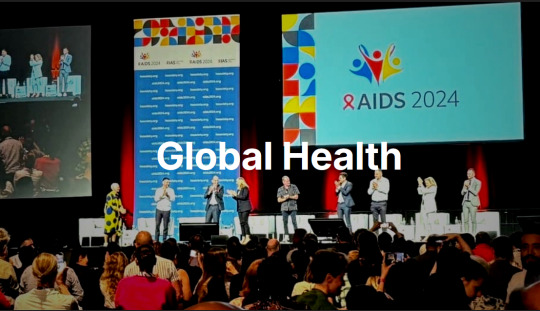
1. A game-changing HIV drug was the biggest story of 2024
In what Science called the 'breakthrough of the year', researchers revealed in June that a twice-yearly drug called lenacapavir reduced HIV infections in a trial in Africa to zero—an astonishing 100% efficacy, and the closest thing to a vaccine in four decades of research. Things moved quick; by October, the maker of the drug, Gilead, had agreed to produce an affordable version for 120 resource-limited countries, and by December trials were underway for a version that could prevent infection with just a single shot per year. 'I got cold shivers. After all our years of sadness, particularly over vaccines, this truly is surreal.'
2. Another incredible year for disease elimination
Jordan became the first country to eliminate leprosy, Chad eliminated sleeping sickness, Guinea eliminated maternal and neonatal tetanus, Belize, Jamaica, and Saint Vincent & the Grenadines eliminated mother-to-child transmission of HIV and syphilis, India achieved the WHO target for eliminating black fever, India, Viet Nam and Pakistan eliminated trachoma, the world’s leading infectious cause of blindness, and Brazil and Timor Leste eliminated elephantiasis.
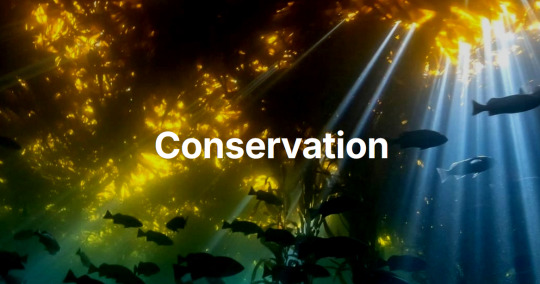
15. The EU passed a landmark nature restoration law
When countries pass environmental legislation, it’s big news; when an entire continent mandates the protection of nature, it signals a profound shift. Under the new law, which passed on a knife-edge vote in June 2024, all 27 member states are legally required to restore at least 20% of land and sea by 2030, and degraded ecosystems by 2050. This is one of the world’s most ambitious pieces of legislation and it didn’t come easy; but the payoff will be huge - from tackling biodiversity loss and climate change to enhancing food security.
16. Deforestation in the Amazon halved in two years
Brazil’s space agency, INPE, confirmed a second consecutive year of declining deforestation in the Brazilian Amazon. That means deforestation rates have roughly halved under Lula, and are now approaching all time lows. In Colombia, deforestation dropped by 36%, hitting a 23-year low. Bolivia created four new protected areas, a huge new new state park was created in Pará to protect some of the oldest and tallest tree species in the tropical Americas and a new study revealed that more of the Amazon is protected than we originally thought, with 62.4% of the rainforest now under some form of conservation management.
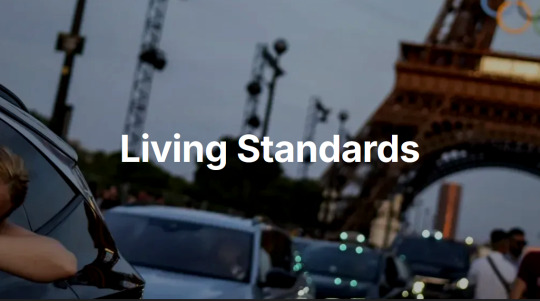
39. Millions more children got an education
Staggering statistics incoming: between 2000 and 2023, the number of children and adolescents not attending school fell by nearly 40%, and Eastern and Southern Africa, achieved gender parity in primary education, with 25 million more girls are enrolled in primary school today than in the early 2000s. Since 2015, an additional 110 million children have entered school worldwide, and 40 million more young people are completing secondary school.
40. We fed around a quarter of the world's kids at school
Around 480 million students are now getting fed at school, up from 319 million before the pandemic, and 104 countries have joined a global coalition to promote school meals, School feeding policies are now in place in 48 countries in Africa, and this year Nigeria announced plans to expand school meals to 20 million children by 2025, Kenya committed to expanding its program from two million to ten million children by the end of the decade, and Indonesia pledged to provide lunches to all 78 million of its students, in what will be the world's largest free school meals program.
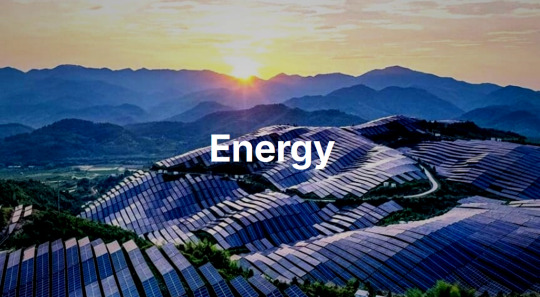
50. Solar installations shattered all records
Global solar installations look set to reach an unprecedented 660GW in 2024, up 50% from 2023's previous record. The pace of deployment has become almost unfathomable - in 2010, it took a month to install a gigawatt, by 2016, a week, and in 2024, just 12 hours. Solar has become not just the cheapest form of new electricity in history, but the fastest-growing energy technology ever deployed, and the International Energy Agency said that the pace of deployment is now ahead of the trajectory required for net zero by 2050.
51. Battery storage transformed the economics of renewables
Global battery storage capacity surged 76% in 2024, making investments in solar and wind energy much more attractive, and vice-versa. As with solar, the pace of change stunned even the most cynical observers. Price wars between the big Chinese manufacturers pushed battery costs to record lows, and global battery manufacturing capacity increased by 42%, setting the stage for future growth in both grid storage and electric vehicles - crucial for the clean flexibility required by a renewables-dominated electricity system. The world's first large-scale grid battery installation only went online seven years ago; by next year, global battery storage capacity will exceed that of pumped hydro.
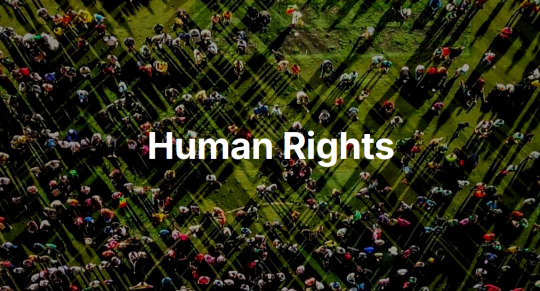
65. Democracy proved remarkably resilient in a record year of elections
More than two billion people went to the polls this year, and democracy fared far better than most people expected, with solid voter turnout, limited election manipulation, and evidence of incumbent governments being tamed. It wasn't all good news, but Indonesia saw the world's biggest one day election, Indian voters rejected authoritarianism, South Korea's democratic institutions did the same, Bangladesh promised free and fair elections following a 'people's victory', Senegal, Sri Lanka and Botswana saw peaceful transfers of power to new leaders after decades of single party rule, and Syria saw the end of one of the world's most horrific authoritarian regimes.
66. Global leaders committed to ending violence against children
In early November, while the eyes of the world were on the US election, an event took place that may prove to be a far more consequential for humanity. Five countries pledged to end corporal punishment in all settings, two more pledged to end it in schools, and another 12, including Bangladesh and Nigeria, accepted recommendations earlier in the year to end corporal punishment of children in all settings. In total, in 2024 more than 100 countries made some kind of commitment to ending violence against children. Together, these countries are home to hundreds of millions of children, with the WHO calling the move a 'fundamental shift.'
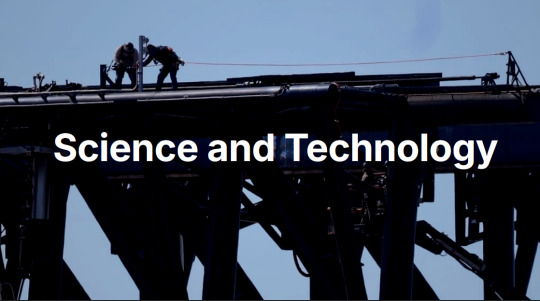
73. Space exploration hit new milestones
NASA’s Europa Clipper began a 2.9 billion kilometre voyage to Jupiter to investigate a moon that may have conditions for life; astronomers identified an ice world with a possible atmosphere in the habitable zone; and the James Webb Telescope found the farthest known galaxy. Closer to Earth, China landed on the far side of the moon, the Polaris Dawn crew made a historic trip to orbit, and Starship moved closer to operational use – and maybe one day, to travel to Mars.
74. Next-generation materials advanced
A mind-boggling year for material science. Artificial intelligence helped identify a solid-state electrolyte that could slash lithium use in batteries by 70%, and an Apple supplier announced a battery material that can deliver around 100 times better energy density. Researchers created an insulating synthetic sapphire material 1.25 nanometers thick, plus the world’s thinnest lens, just three atoms across. The world’s first functioning graphene-based semiconductor was unveiled (the long-awaited ‘wonder material’ may finally be coming of age!) and a team at Berkeley invented a fluffy yellow powder that could be a game changer for removing carbon from the atmosphere.
-via Fix The News, December 19, 2024
#renumbered this to reflect the article numbering#and highlight just how many stories of hope there are#and how many successes each labeled story contains#2024#good news#hope#hope posting#hopeposting#hopepunk#conservation#sustainability#public health#energy#quality of life#human rights#science and technology
3K notes
·
View notes
Text
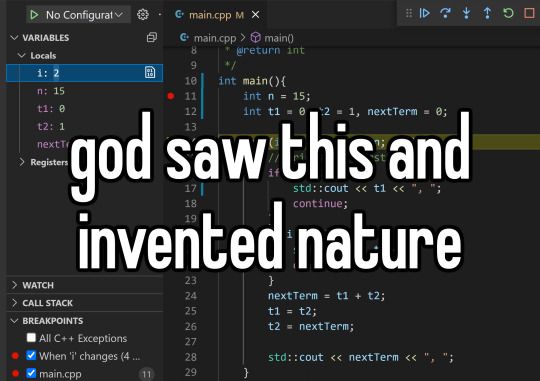
#this is a joke about the “humans saw this and invented <technology>” meme#this isn't a joke about the fibonacci sequence specifically yall are writing fanfic about my meme in the notes
7K notes
·
View notes
Text
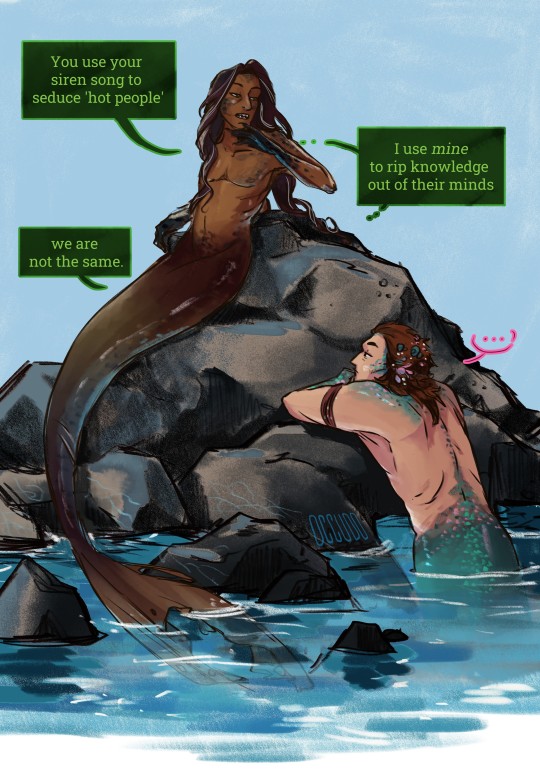
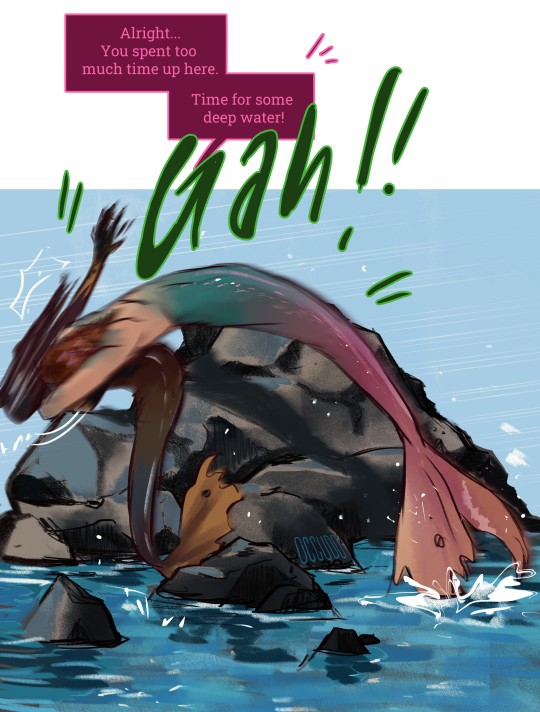
Sassy Siren!Jon and down to earth water Siren!Tim
based on @just-prime 's ask
#occudo's art#tma fanart#jonathan sims#tim stoker#siren!jon#siren!tim#or 'deep water' is the siren equalent of 'fresh air'#also- is supernatural things that this Jon is interested in#are just like human technology?#this is not an another AU I swear#just thinking about it...
3K notes
·
View notes
Text
Google is hiding the truth, and playing with words to change the facts, and to change the truth about what happened in Nuseirat camp, it's literally censoring the Nuseirat Massacre.
#gaza#free gaza#palestine#free palestine#gaza genocide#from the river to the sea palestine will be free#do not stop talking about palestine#don't stop talking about palestine#فلسطين#google#technology#tech#ai#palestine genocide#nuseirat refugee camp#nuseirat massacre#current events#human rights
2K notes
·
View notes
Text
youtube
AI vs HUMANS |Shaping Humanity's Destiny or Threatening Identity | Darryl Omar
AI continues to advance, some view it as a powerful force that can propel us into a brighter future, enhancing our lives and solving complex problems. However, others express concerns about the potential threats it poses to our very identity and existence. Join us as we examine the promises and perils of AI, inviting experts from various fields to share their insights on whether AI will shape our destiny or jeopardize the essence of what it means to be human.
#artificial intelligence#shaping humaity's destiny#threatening destiny#darryl omar#artificial intelligence tutorial#artificial intelligence for beginners#fascinating world of artificial intelligence#machine learning#human machine interaction#ai revolution#technological progress#ai in everyday#ai and human values#human identity#technology and humanity#shaping humanity's sestiny or threatening identity#thought provoking video#Youtube
0 notes
Text
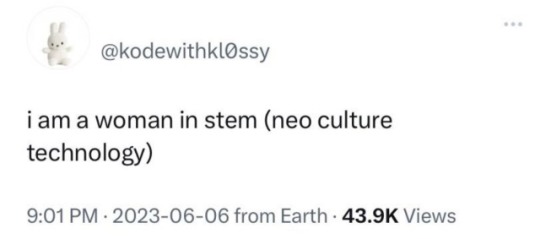
meee :3
#also in the humanities <3 neo CULTURE technology#neo culture technology#nctzen#nct#nct 127#nct dream#wayv#nct wish#kpop
912 notes
·
View notes
Text

Sometimes tiktok is good, mostly because humans are good
2K notes
·
View notes
Text
What really makes us so different?









Is mechanical life really so much below organic life?
1K notes
·
View notes
Text
Living in a Sci-Fi Reality
Explore how we live in a sci-fi reality where technology, imagination, and human potential shape our present and future in profound and unexpected ways.
Living in a Sci-Fi Reality and In the blink of an eye, yesterday’s dreams became today’s reality, A world where the fantastic dances with the mundane, Where silicon thoughts mingle with carbon dreams. We wake to the soft whisper of AI assistants, Their voices a gentle reminder of the future that has already arrived. Our homes pulse with invisible intelligence, Anticipating our needs before we…
#Artificial Intelligence#augmented reality#future potential#Innovation#Mars exploration#modern society#sci-fi reality#sci-fi world#technology and humanity
0 notes